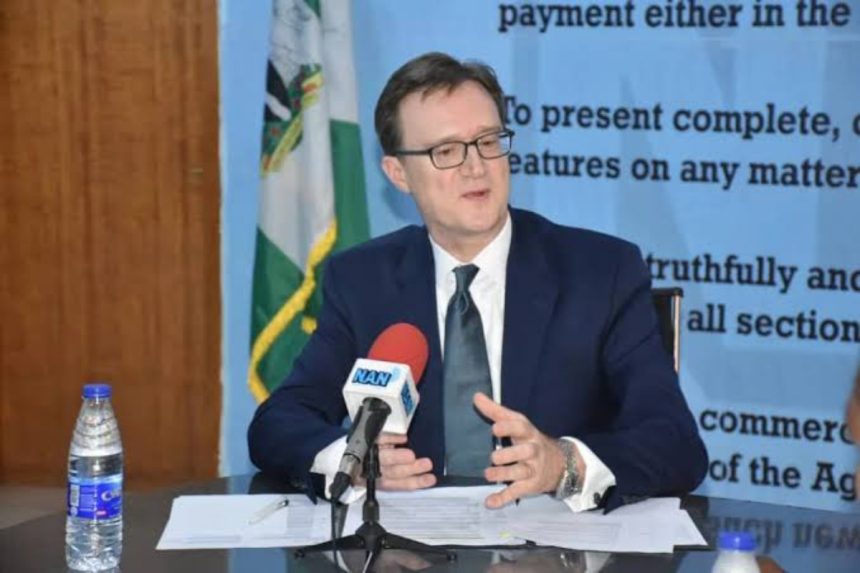Dr. Richard Montgomery, the British High Commissioner, has clarified the United Kingdom’s recent policy change which restricts family accompaniment for foreign students.
During a conversation with the News Agency of Nigeria (NAN) in Abuja, Dr. Montgomery provided insights into the decision to halt foreign students from bringing their families to the UK.
The policy, which was revised earlier this year, aims to manage the burgeoning number of dependants accompanying international students, which has placed considerable strain on university resources.
The High Commissioner pointed out that the influx of dependants has led to unsustainable demands on university accommodations, healthcare services under the National Health Service, and educational facilities for children.
Dr. Montgomery emphasized that the policy does not affect all student categories, noting that PhD candidates are still permitted to bring their dependants.
“Those coming to the UK for doctorate can still bring their dependants but if you are coming to the UK with a study visa for an undergraduate degree, or short term master’s degree am afraid the rules have been changed.
“People need to understand why this change was brought in, and it is a sensible change because we have a large higher education sector and most of these universities are in towns across the country.
“There has been a surge recently, in demand for British education and I can give you the macro figures and there has also been a huge increase in foreign students bringing their dependants.
“In the case of Nigeria, in 2019, before the Coronavirus pandemic, there were only one and a half thousand dependants being brought in from Nigeria, with those on study visas,
“In 2022, that figure had increased to fifty two thousand dependants so that’s a thirty fold increase in dependants. And it’s not just about Nigeria by the way.
“It is also about all foreign students, we saw similar rises, for example amongst Indian students coming to study in the UK.”
“Speaking on the policy initiation it is early to ascertain the impact of the policy on undergraduates because these changes were announced in 2023, but came into effect early this year and we would have to wait until September 2024, before we get the next run of academic tickets, he said.
“I think what your wider audience needs to hear is that the demand for UK education is really strong, in 2022, 65,000 study visas was approved to Nigerian applicants, 65,000, while in September 2023 we received about 115,000 Study visa applications from Nigeria.
“Of which 95 per cent were approved and over 110,000 study visas were issued last September compared to 65,000 of the previous year, there’s almost a doubling of Nigerian study visas in 2023 which means the demand is really high.
“And it is something which I am genuinely pleased and proud about that the UK has such a good higher educational sector and we are still at the six economy, and is still one of the biggest economies but we are only 2.5 per cent of the global economy.
“So we have 17 of the top 100 universities in the world. We have 17 per cent of the top universities, so it is one of our units.
“I really like the demand but there are other factors at play in terms of schooling in the UK, the value of the Naira in the coming months will also determine how easy or hard it will be for many people to afford our education.
“But I really hope that the number of people who bring dependants in UK may actually not be a majority, but a minority of people have tried to study in the UK so am hoping that the demand will be sustained”





